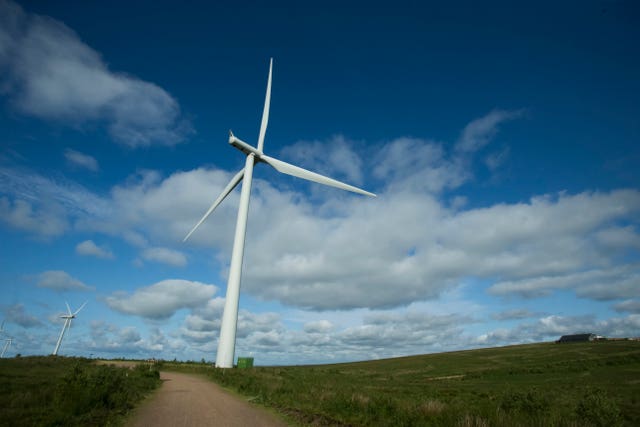
Shelagh Fogarty 1pm - 4pm
23 June 2022, 17:54

The Business Secretary said people can use their own ‘common sense’ when it comes to conserving energy.
The Business Secretary has insisted that new onshore wind farms should be subject to “local consent”, arguing the infrastructure cannot be imposed “top down” because “we’re not in China”.
He also said people can use their own “common sense” when it comes to conserving energy, saying it is not his role as a minister to say “you should wear an extra jumper over the winter”.
The Government said in its recent energy strategy that it will not introduce “wholesale changes” to planning regulations on onshore wind which, along with a ban on subsidies for the technology that has been reversed, effectively halted the development of new farms in England.
But it will consult on “developing partnerships with a limited number of supportive communities who wish to host new onshore wind infrastructure in return for guaranteed lower energy bills”.

Prime Minister Boris Johnson has said the wind farms are controversial because of their visual impact, and that new sites “will have a very high bar to clear” and would have to reward local residents with cheaper energy.
In its strategy, the Government said its plans will “prioritise putting local communities in control”.
When it was put to Mr Kwarteng that there is concern that ministers are “pandering to some sort of Nimby-ism” on the matter, the minister acknowledged onshore wind has been “controversial in the past” but said there is now “wider agreement” that it is “the right way forward”.
Speaking at a conference hosted by the Chatham House think tank, he said: “It has to be part of a local consent. We’re not in China – we can’t simply just impose top down where all this infrastructure goes.”
Mr Kwarteng also said he has never wanted to “stray into” telling people they must make certain choices to conserve energy, such as taking a shower instead of a bath.
“I’ve always thought, as a minister, it’s not my job to say ‘Oh well, you should wear an extra jumper over the winter’,” he said.
“I think people can use their own common sense and their own judgment in these things. Different politicians have different styles.
“Some governments will say, you know, you’ve got to take a shower instead of a bath, we recommend doing that – that’s not something that I’ve ever wanted to stray into.”
He later added: “Where I’m very wary is in actually lecturing people on whether they should wear two or three jumpers, or, as one of our heads of our energy supply companies was recommending, (do) star jumps. They were saying their customers should do star jumps to keep warm.
“That’s not an area where I think ministers have any responsibility or authority to comment on. So, it’s a balance. And I think I’m much more of a believer in nudging people and encouraging and setting up a framework than direct encouragement.”
Greenpeace UK political campaigner Ami McCarthy said: “The Business Secretary is being hypocritical and environmentally destructive to balk at being ‘top down’ on wind farms, and dismiss them as a controversial local issue when his Government has a whole task force to promote oil and gas exploration, and pushes nuclear and fossil fuels on grounds of energy security.
“Government’s own data shows 80% public support for onshore wind, and hundreds of wind farms already have planning permission.
“We urgently need cheap, clean, homegrown renewable power. Kwarteng should remove government planning blocks, expand ambition and empower communities who want to bring down bills and do their bit for the climate to make their own choices about onshore wind.”
Meanwhile, Mr Kwarteng said the Government was still “fleshing out the details” of its windfall tax on oil and gas producers.
The Business Secretary said consultations with the energy industry were ongoing.
It came as Chancellor Rishi Sunak was due to meet leaders from the North Sea oil and gas industry during a visit to Aberdeen on Thursday.
The energy profits levy is expected to pay for £5 billion of the UK Government’s emergency cost-of-living support package.
However, some companies, such as the country’s biggest oil and gas producer Harbour, have warned that the plan will lead to lower investment despite planned allowances within the policy.
Mr Kwarteng told the conference: “It’s a consultation and we are fleshing out details at the moment.
“We have a strong commitment to investment and have outlined allowances to ensure that is recognised as this is finalised.”